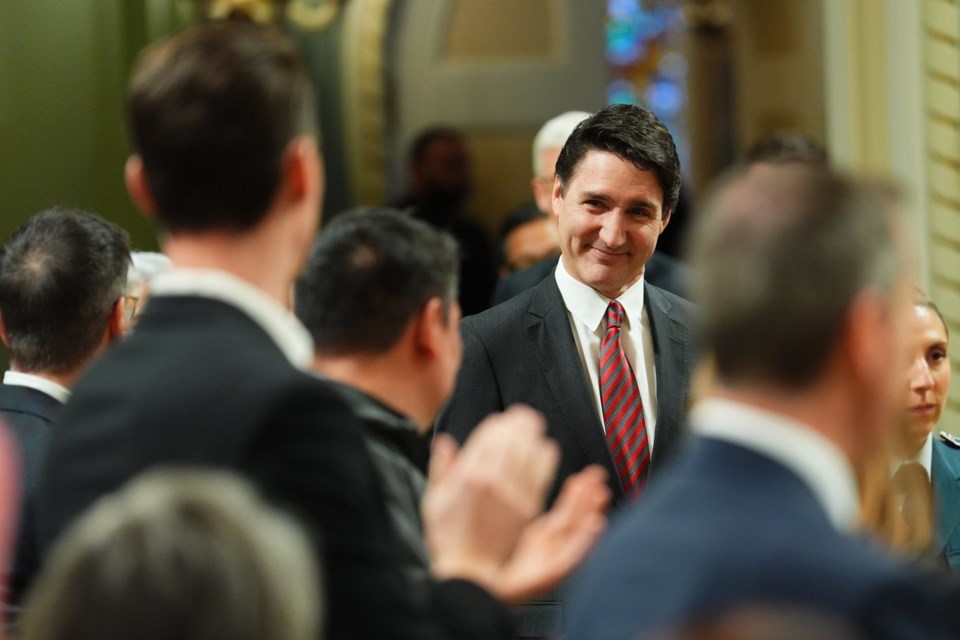OTTAWA — Gov. Gen. Mary Simon granted Justin Trudeau's request Monday to prorogue Parliament until Mar. 24, suspending activities of the House of Commons while the Liberals move to replace him as both Liberal Leader and prime minister.
The move means the legislative agenda will be reset once the House of Commons reconvenes in March and some key pieces of legislation for the government may die on the order paper.
Once the House of Commons resumes, there is the potential for work that ended due to prorogation be restored if opposition parties support a motion calling for them to resume debate where they left off.
But there is no guarantee that ever happens as opposition parties are seeking to defeat the government entirely.
The Online Harms Act, which was recently split into two separate bills, is among the pieces of legislation with a questionable future.
The legislation aims to hold platforms, like social media sites, accountable for content that appears on their websites. This includes content used to bully, incite violence and promote hatred, which has been criticized for potential Charter violations.
There is also risk for a court-ordered piece of legislation to grant citizenship to individuals born outside of the country to Canadian parents who were also born in another country. The bill seeks to replace legislation passed by the former Conservative government in 2009, but was deemed unconstitutional in 2023.
A judge gave the government three more months to pass the bill in December, but the current deadline of Mar. 19 will now be missed without another extension.
A central piece of the last federal budget, increasing the capital gains tax inclusion rate, is also in limbo. The government's goal is to increase the rate individuals pay on capital gains above $250,000 from one-half to two-thirds, and for all gains for trusts and corporations.
The government did not include the change in the budget implementation act, instead opting to bring it in as separate legislation. The relevant bill was not introduced as the House of Commons was caught up in a filibuster from late September until the Christmas break.
Indigenous Services Minister Patty Hajdu touted a bill that aims to ensure First Nations communities have clean drinking water and the ability to protect source water as the closest the federal government has come to co-developing legislation with Indigenous Peoples. Seeking to replace a Conservative bill, the First Nations Clean Water Act would ensure First Nations communities receive at least the same funding as other jurisdictions for water treatment, and recognize they have a right to clean drinking water.
The Liberals also announced a bill that sought to create a modern treaty commissioner which would ensure the government was abiding by the terms in modern treaties with First Nations. Communities with modern treaties called for the creation of the commissioner for years, saying they had little recourse when the government failed to uphold its obligations.
— With files from Alessia Passafiume.
This report by The Canadian Press was first published Jan. 6, 2025.
Anja Karadeglija and David Baxter, The Canadian Press

